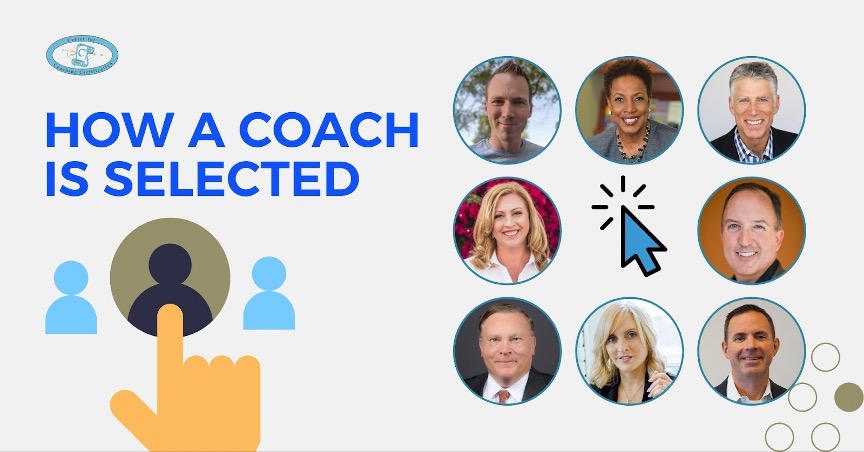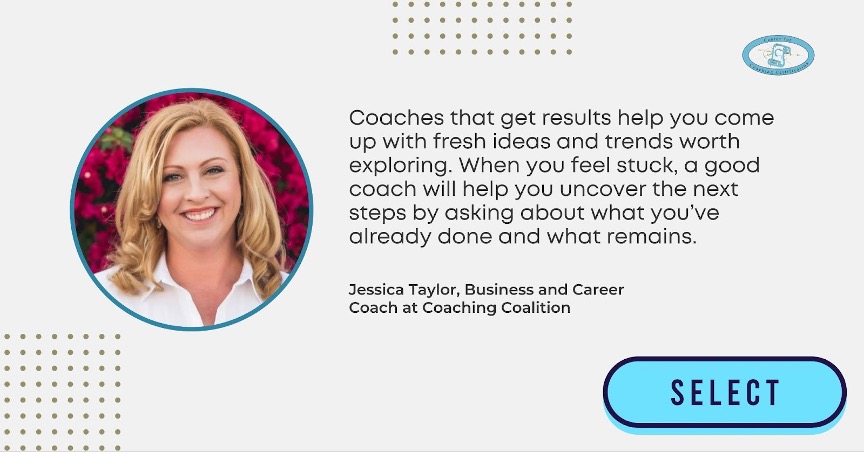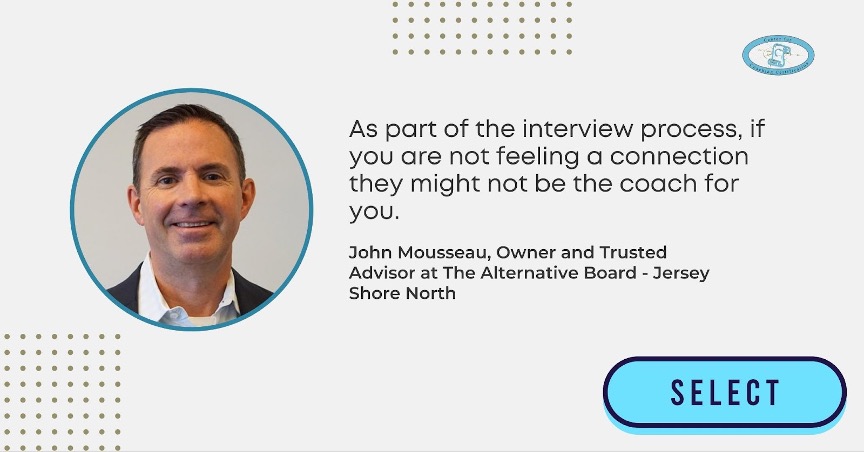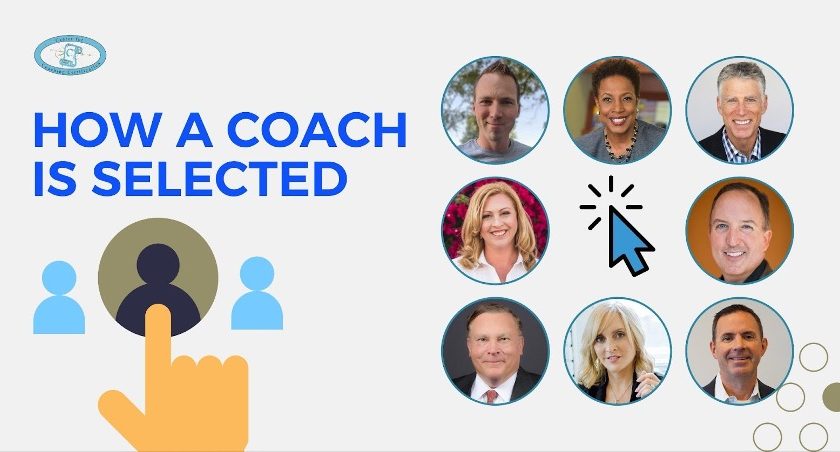
What is one criterion you look for (or others should look for) when selecting a coach?
To help you identify the best criterion to look for when selecting a coach, we asked professional coaches and consultants this question for their best insights. From asking them to provide a demo of their coaching style to discovering a coach with empathy, there are several criteria you should look for to aid you in discovering and hiring the best coach for your personal and professional needs. Here are 13 criteria these coaches suggest you focus on when selecting a coach:
- Ask Them to Provide a Demo of Their Coaching Style
- Your Coach Must Know Their Limitations
- Understand the Coach’s Approach to Coaching
- Use Social Media to Find The Coach’s Unique Voice
- Look for ICF-Certification
- Make Sure Their Focus is You (The Client)
- Find a Coach Committed to Professional Development
- Seek a Connection with Your Coach
- Look For a Practiced Ability to Ask Insight-Yielding Questions
- Assess Adaptability
- Seek Proven Expertise in Publications
- Look for Clarity, Connection, and Inner Wisdom
- Discover a Coach with Empathy
Ask Them to Provide a Demo of Their Coaching Style
Coaching is a relationship. It should be a good fit for both the coach and the client. When selecting a coach, you want to make sure that you are working with someone that does believe in you, but also believes in their ability to be the right coach for you. Skills and timing will play a role in whether or not it’s a good fit for that season. I strongly believe that you should be able to try before you buy when it comes to coaching. If your coach is not willing to provide you with a demo of their coaching style and a little bit of how they operate that should be a red flag.
- Evan Kubicek, Partner and Impact Coach, Growth10
Your Coach Must Know Their Limitations
I have had some amazing coaches that have elicited life-altering breakthroughs, but in order to really take action, I’ve also needed therapists to help me integrate it all. Your coach must know the difference between coaching and therapy (or be a licensed clinician who can do both!). Coaching is goal-focused and usually about the present, while therapy typically considers how experiences in the past are impacting the present and identifies ways in which the resolution of past issues can positively affect current life decisions. Should your coach tread into deep water with you, it is important that s/he has clinicians who can consult or to whom s/he can refer you for additional support.
- Sage Breslin, Breakthrough Psychologist and Coach, Sage Wisdom Institute
Understand the Coach’s Approach to Coaching
Coaching is an unregulated global industry and there is limited consensus on best practices. On any given day, virtually any adult can wake up and declare themselves a coach. With more than 75,000 coaches estimated worldwide, clients need to investigate a coach’s approach to coaching and where they learned it.
If, for example, you’re looking for a coach to support your growth as a leader, you’ll want to understand how the coaching will:
- increase your self-awareness, expand your interpersonal dexterity, and perception of the range of available choices.
- lead to sustained change in your behavior.
- David Ehrenthal, Principal, Mach10 Career and Leadership Coaching
Use Social Media to Find The Coach’s Unique Voice
Coach/Client relationships are just like any other relationship. They take time to grow. And just like any other relationship, they can sour when you get to know each other better. One way to help this process along is to do a little cyber snooping and follow your potential coach on social media. Before long, you’ll get a better idea of what type of person the coach is and if that personality fits what you’re looking for.
- Kelly Blackmon, Certified Professional Coach
Look for ICF-Certification
In selecting a coach, the priority has to be their training. An ICF-certified coach will know effective coaching techniques, have the skills to be a compassionate listener, and, most importantly, have the wisdom to know when to refer a client to a qualified psychologist. And an ICF-certified coach has been taught the ethics of coaching to protect the client and themselves.
- Joia Nuri, PCC, Executive Leadership and Public Speaking Coach, In The Public Eye Communications
Make Sure Their Focus is You (The Client)
Beware of a coach who tries to sell you on their services. Instead, an accomplished and effective coach is going to be focused on you and on truly understanding who you are and how they can support you. Do you feel heard and acknowledged in your conversation? Are they asking you insightful, open-ended questions? Are they trying to help you uncover your own answers vs. pitching their brilliance, success record, or technique? If you feel uplifted, energized, and a budding sense of trust and rapport, you’re on the right track.
- John Tarnoff, Career Transition Coach, Reinvention Group LLC
Find a Coach Committed to Professional Development
Coaches that get results help you come up with fresh ideas and trends worth exploring. When you feel stuck, a good coach will help you uncover the next steps by asking about what you’ve already done and what remains. Often, we can’t see the possibilities because we don’t know what we don’t know yet, and effective coaches use questions to shine light into those corners. My favorite coach is someone who’s engaged in their own professional development because it shows they will take an active interest in their clients. During a discovery call, ask your potential coach about key takeaways from their most recent professional development course.
- Jessica Taylor, Business and Career Coach, Coaching Coalition

Seek a Connection with Your Coach
Coaching is very personal. You will be asked to share a lot of information about yourself and allow yourself to be vulnerable. The only way you will be vulnerable is if you have a personal connection with your coach and you trust them. As part of the interview process, if you are not feeling a connection they might not be the coach for you.
- John Mousseau, Owner and Trusted Advisor, The Alternative Board – Jersey Shore North

Look For a Practiced Ability to Ask Insight-Yielding Questions
I believe that after the basics are met (confidentiality, trust, and rapport), the most important thing that a coach should do, to ensure success, is to have the practiced ability to ask the right insight-yielding questions. The coach will need to understand the coachee well to know what the right questions are to ask.
Asking open-ended questions and using these to dig deep during coaching sessions, when needed, often leads to insights. The right open-ended questions will allow the coachee to see things in new and different ways that create a network of innovative thinking pathways. These new cognitive pathways will help them to overcome any stumbling blocks so that they can achieve their goals. I get very excited when a coachee has this ‘lightbulb moment’!
- Jamie L Weiss, PhD, Career and Leadership Coach/Mentor, Your Career Success
Assess Adaptability
Look for demonstrations of FLOW in your coach. Effective coaches can meet clients “where they are” and not hold their actions to a strict framework. Client needs can vary from one appointment (or hour) to the next. The best coaches can adapt in real-time to help their clients or coachees deal with what is in front of them while preparing them to upgrade their skills to be more effective as a self-correcting, self-generating person over time. The coach and client should agree on some mid to long-term goals but the effective journey to arrive at that destination is crucial.
- Richard Hazeltine, Principal Consultant and Coach, Rich Integration
Seek Proven Expertise in Publications
Is your coach a leader and has experience in the fields you seek assistance? Have they conveyed this knowledge in published books/articles which are rated on a national platform, like Amazon? Can they articulate their metrics in the people they have assisted? You are an individual, can your coach work with you to understand what you are doing, not doing, and find a way forward with you in the challenges you seek to conquer or goals you desire to achieve?
- Joe frankie, President and Founder, JFIII Associates LLC
Look For Clarity, Connection, and Inner Wisdom
The most critical two things in any coaching relationship are clarity and connection. The client must have clarity on what they want to achieve with the coach, and the perspective coach must have (and be able to articulate) exactly how they can help the client achieve it. Once that’s established, a client should ask themselves if this coach resonates enough that they feel they could open up, be vulnerable, and completely trust them. Because without that high level of trust, the coaching will be less effective.
The thing is, your own inner wisdom will let you know. If you feel any reservations at all about hiring the coach…listen to that and keep interviewing until you find one that you can hire without reservation.
- Cynthia Corsetti, Founder and CEO, Cynthia Corsetti Coaching, LLC
Discover a Coach with Empathy
Great coaching allows you to be in the best position to succeed with as few setbacks as possible. I’ve been blessed to have profound coaches throughout my journey and privileged with the opportunity to be a coach to others. The attribute of the coaches that have changed my life that I also carry as a coach with others is empathy.
Empathy is the foundation for a valuable player/coach relationship—it helps the person you’re coaching feel secure in expressing their goals and challenges. If you have a coach who can ask you the right questions, listen to what you have to say, empathize with your journey, give you the advice to grow and succeed, and then champion you from the sidelines, you’ve hit the jackpot!
- Marques Ogden, Inspirational Keynote Speaker, Ogden Ventures LLC



